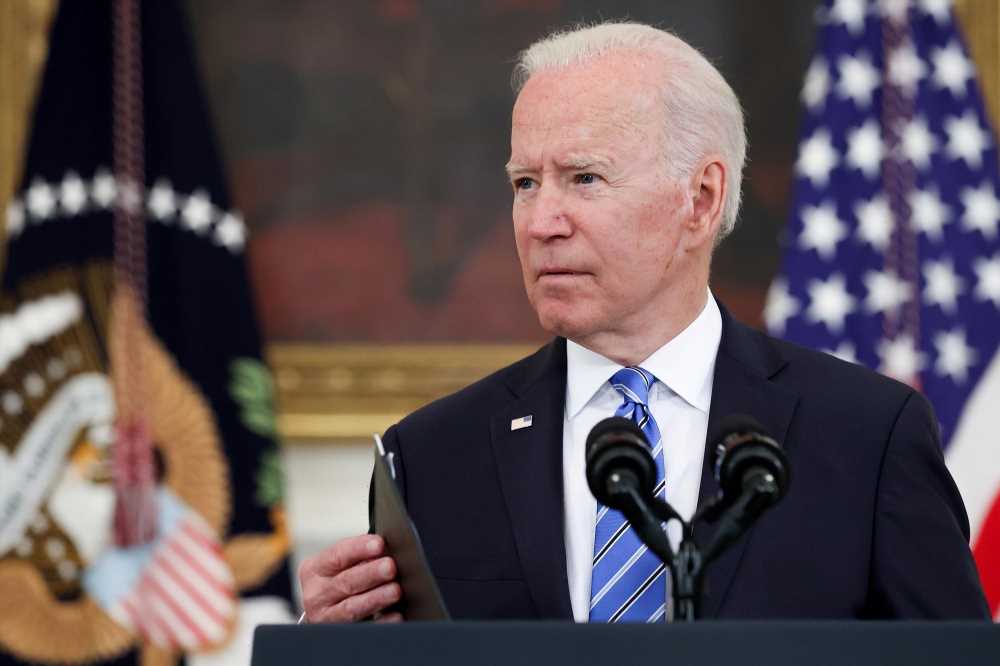More On:
Coronavirus
State Department, CDC warn against traveling to UK amid COVID surge
Doctor calls for indoor mask mandates over COVID breakthrough cases
New Jersey study says vaccines more than 99% effective against COVID-19
Here’s when fully vaccinated Americans can start visiting Canada again
President Biden on Monday insisted that his massive spending plans aren’t causing price hikes on everything from bacon and bread to gas and electricity, saying inflation is “temporary” and “expected” after the COVID-19 pandemic.
Biden argued that about 60 percent of price increases are caused by “transitory effects” linked to COVID-19, such as shortages of lumber and semiconductors, and aren’t a sign of substantial long-term inflation linked to deficit spending.
“Our experts believe and the data show that most of the price increases we’ve seen were expected and are expected to be temporary. The reality is you can’t flip the global economics light back and not expect this to happen,” Biden said.
Biden also claims that a pair of massive bills that he hopes to ram through Congress this year — costing a combined $4.7 trillion — would actually reduce inflation. At least in theory, the bills would be offset by tax hikes and other new revenue sources, though the details remain in flux.
“If your primary concern right now is inflation, you should be even more enthusiastic about this plan,” Biden said in remarks from the White House State Dining Room. “These steps will enhance our productivity, raising wages without raising prices, and won’t increase inflation. It will take the pressure off of inflation.”
According to data from the Bureau of Labor Statistics, there’s been a dramatic annual jump in the prices of food and other common consumer goods.
Over the past 12 months, the price of gasoline increased 45.1 percent, the cost of energy increased 24.5 percent, the cost of bacon rose 8.4 percent, whole milk increased 7.5 percent and the cost of fresh fruit grew 7.3 percent.
In June, major home appliances cost 13.7 percent more than last year, furniture was 8.6 percent more expensive, shoes increased 6.5 percent in price and plane tickets were up 24.6 percent.
Even some Democratic economists, including former Treasury Secretary Larry Summers, are warning that inflation may not be fleeting, imperiling the post-pandemic economic rebound as well as Biden’s ambitious legislative agenda, including a bipartisan $1.2 trillion infrastructure bill and a supplementary $3.5 trillion budget reconciliation bill that Democrats hope to pass without Republican support.
But Biden insisted that his new legislation would actually help reduce inflation.
“If we make prudent, multi-year investments in better roads, bridges, transit systems and high-speed internet and a modern resilient electric grid, here’s what will happen: It breaks up the bottlenecks in our economy; goods get to consumers more rapidly and less expensively; small businesses create and innovate much more seamlessly,” Biden argued Monday.
“New businesses will get in the game, competing against those giant corporations for free to ramp up prices because they haven’t had any real competition.”
The pending spending bills would follow a DC spending spree during the pandemic designed to stave off economic devastation through deficit spending.
A $1.9 trillion COVID-19 stimulus bill that passed Congress in March without a single Republican vote was widely fingered by Republicans for fueling inflation with $1,400 checks for most Americans, $350 billion for state and local governments and a $300 weekly unemployment supplement for unemployed people, reducing the number of low-wage workers who returned to their jobs.
This year’s stimulus bill followed generous bipartisan stimulus legislation that also included direct checks and a federal unemployment supplement earlier in the pandemic, which also wasn’t offset with revenue increases.
Share this article:
Source: Read Full Article


